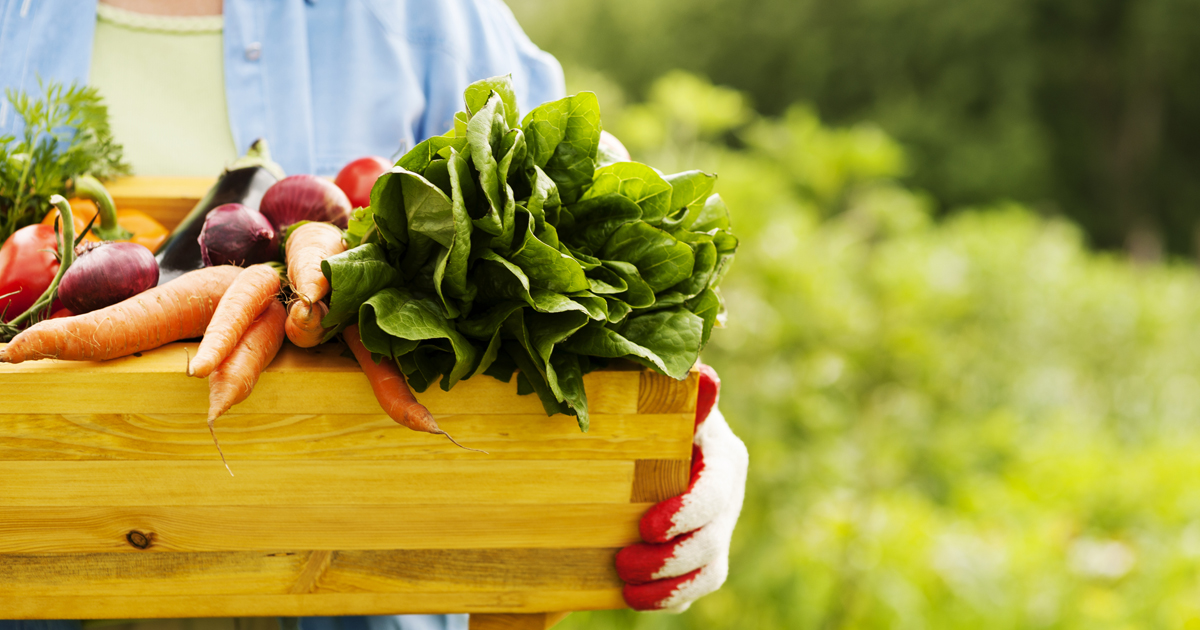It’s the peak of the growing season, and hopefully, your kitchen is overflowing with nature’s bounty. Whether it’s from your backyard, your favorite CSA, or the local grocery store, we’ve gathered some of our favorite tips for storing fruits and vegetables.
- Start by buying the right amount when you go to the farmer’s market or the store. Even though some root vegetables can last for a month if properly stored, as a general rule, buy what you will eat in the next 2-5 days. If you do buy too much, consider making a pie, jam, pesto, or freezing them before they go bad.
- Do not store fruits and vegetables together. Fruits give off high levels of ethylene, a ripening agent that can prematurely ripen surrounding food. Bananas ripen very quickly and will speed up the ripening process for any nearby fruits. I store mine in a separate countertop basket on the other side of the kitchen. If you want to speed up the ripening process, put the items in a paper bag with other fruits.
- Remove ties and rubber bands and trim the leafy ends to one inch to help keep them from drying out. Make sure bags are punctured with holes to allow for good airflow.
- Non-cherry stone fruits will continue to ripen on your counter. This includes avocados, tomatoes, mangoes, melons, apples, pears, and bananas. Refrigerate bell peppers, grapes, berries, and all citrus fruits because it will slow their deterioration.
- To freeze vegetables, wash them thoroughly and then blanch them by lowering them into vigorously boiling water for a few minutes. Then plunge them in cold water for a few minutes. Drain and pack them tightly into containers leaving half an inch of headspace. To freeze berries, spread them out on a cookie sheet. When they are frozen put them in a container.
- Store potatoes and onions in a cool, dark place. If you store potatoes in the refrigerator, they will develop a much higher sugar content. Winter squashes can be kept at room temperature and then refrigerated once they are cut.
- If you want to get away from using plastic for health and environmental reasons, check out this list of how to store fruits and vegetables without plastic.
We hope these tips will help you get the most out of your fresh produce so you don’t have to throw any of it in the trash. If a new refrigerator with climate control options or temperature zones will help you get more, come see us at Friedman’s Appliance. We have many options that will help you store your produce at just the right temperature, and we can’t wait to show them to you!




